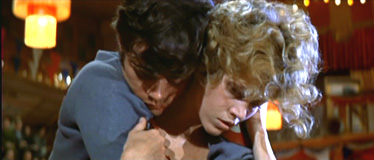
"Take it and pinch-hit for God," she said, pressing it into my hand. "Shoot me. It's the only way to get me out of my misery."
"She's right," I said to myself. (11-20)

|
"Take it and pinch-hit for God," she said, pressing it into my hand. "Shoot me. It's the only way to get me out of my misery." "She's right," I said to myself. (11-20) |